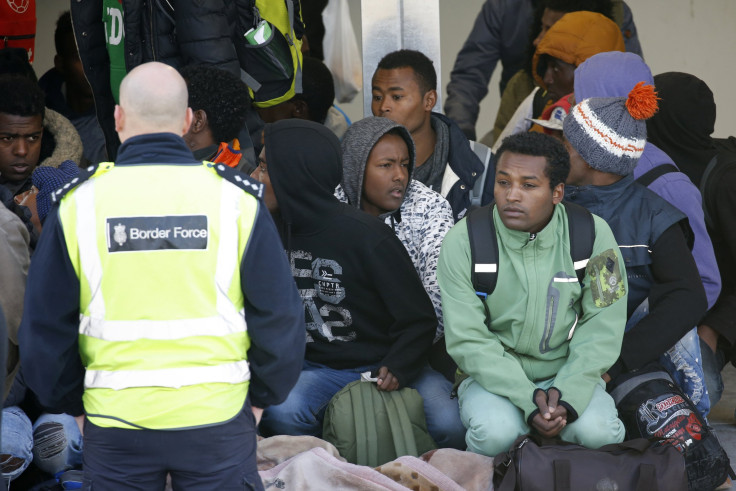Refugees In Europe 2017: French Mayor Bans Giving Food To Migrants To Limit Makeshift Camps

City officials have launched several initiatives to prevent migrants from returning to the former site of a makeshift refugee camp known as the “Calais Jungle” four months after dozens of French police used tear gas and batons to demolish it. Signs explaining the mayor’s policy emerged at the former site of the shantytown Thursday. And officials have already told local charities to stop offering showers to teenage migrants in the surrounding area.
Bouchart said the policy was aimed at preventing the “regular, persistent and large presence of individuals distributing meals to migrants” in the area. It barred any “repeated, prolonged gatherings,” meaning charities could no longer enter the camp and offer free food.
French mayor bans food distribution among #refugees in #Calais#France #foodbannedhttps://t.co/uns4EWS6vc pic.twitter.com/P1pOprhZgz
— World News Network (@worldnewsdotcom) March 3, 2017
Lucie Favry, a member of the Utopia 56 charity, an organization dedicated to helping migrants based in Calais, told The Telegraph, “there are about 300 migrants around Calais who are sleeping rough in the cold and rain, and around 60 percent of them are minors.”
Local law enforcement is enforcing a “zero tolerance policy” on migrants living on the streets, rounding them up and oftentimes sending them to less crowded official refugee centers in order parts of the country. Sarah Arrom, who is also a member of Utopia 56, told The Guardian that police officers used fired teargas to stop volunteers of the charity from handing out breakfast to 30 teenage migrants at another makeshift camp Thursday. Until the announcement of Bouchart’s policy, Utopia 56 distributed over 250 hot meals a night to migrants hailing mostly from Eritrea, Sudan and Ethiopia.
Bouchart attempted to eliminate another illegal migrant camp under a bridge by the city’s main train station in February by placing large boulders at the site, making it significantly harder for migrants to set up tents and sleep there. That makeshift camp emerged in front of the La Chapelle refugee center, which doesn’t have any bed spaces left after taking in more than 5,200 since opening in November.
At least 85,000 people, many of who escaped violence and poverty in the Middle East, applied for asylum in France in 2016, according to the Asylum Information Database, which collects information on the influx of migrants entering Europe.
© Copyright IBTimes 2025. All rights reserved.






















